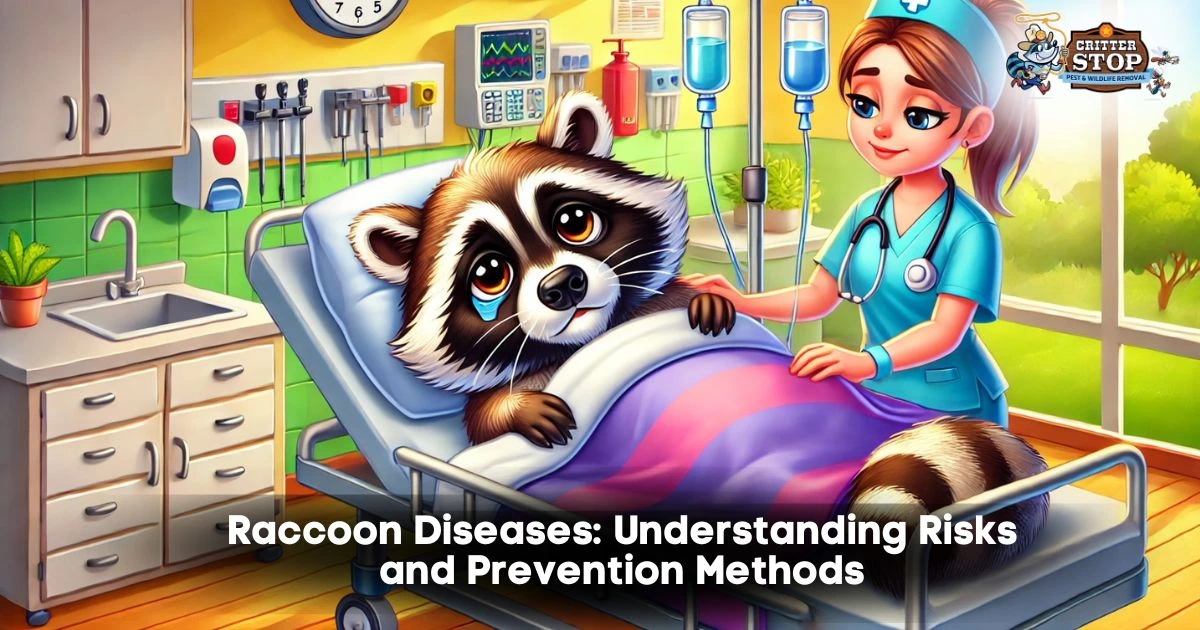
Raccoons are fascinating creatures known for their intelligence and adaptability. However, they can also be carriers of various diseases that pose risks to both them and humans. Understanding the diseases that raccoons can transmit to humans is crucial for anyone living near these wild animals.
These animals harbor various pathogens, including rabies, leptospirosis, and giardiasis. Each disease can have serious implications for human health, making it important to know the potential dangers. Raccoons often come into contact with neighborhoods and urban areas, which increases the likelihood of human exposure.
By recognizing the signs of raccoon-related diseases and understanding how they spread, individuals can take proactive measures to protect themselves and their families. Awareness plays a key role in mitigating risks associated with encounters with these wild animals.
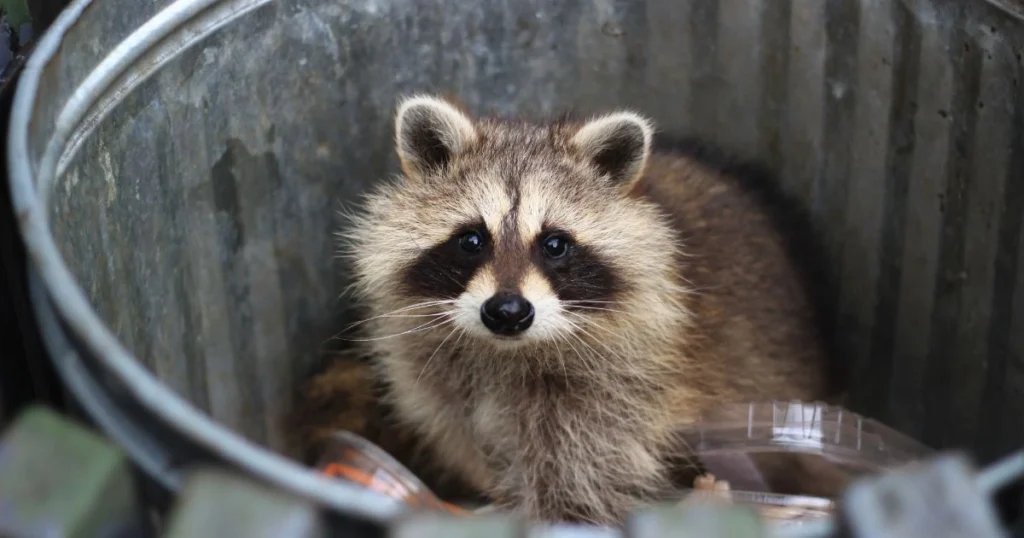
Raccoons are known carriers of various diseases, impacting both their health and that of other wildlife, domestic animals, and humans. Understanding these diseases is essential for effective management and prevention.
Raccoons often carry diseases, with rabies being one of the most significant. This viral infection affects the central nervous system and can be transmitted through bites. Vaccination is crucial for pets in areas where raccoons are prevalent.
Another common disease is Leptospirosis, caused by bacteria in water contaminated by raccoon urine. This can lead to serious health issues in both humans and pets.
Additionally, raccoons can host Baylisascaris procyonis, a roundworm that can infect humans and pets if ingested. Symptoms may vary widely, making avoiding contact with raccoon feces vital.
Awareness of raccoon diseases is crucial for public health and safety. Recognizing symptoms and potential transmission routes aids prevention efforts.
Public education about rabies vaccination for pets and avoiding raccoon habitats helps mitigate risks. Community initiatives can also promote responsible waste disposal to deter raccoons from urban areas.
Moreover, individuals should report sick or behaving unusually raccoons to local wildlife authorities. A quick response can contain outbreaks and protect human and animal populations from spreading diseases.
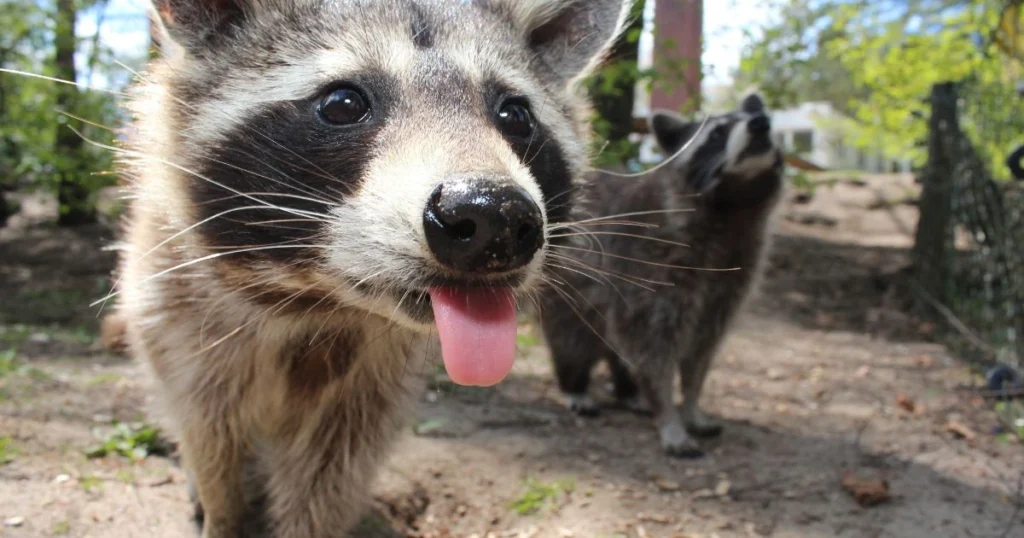
Raccoons are known carriers of several diseases that can be transmitted to humans. Awareness of these diseases is crucial for anyone who may come into contact with raccoons or their habitats.
Raccoons can spread a variety of zoonotic diseases, some of which pose significant health risks. Rabies is among the most serious, a viral infection that affects the central nervous system and is often fatal once symptoms appear. Transmission typically occurs through bites or scratches.
Baylisascaris procyonis, a parasitic infection caused by raccoon roundworms, can lead to severe neurological issues in humans. The eggs are shed in raccoon feces and can contaminate the environment, posing a risk to unsuspecting individuals.
Other diseases include leptospirosis and salmonellosis, resulting from contact with contaminated water or surfaces. Can you die from a raccoon bite? Yes, if the bite leads to infection or if rabies is contracted. To mitigate these risks, prompt medical attention is essential after a raccoon encounter.
Raccoon roundworm, scientifically known as Baylisascaris procyonis, is a parasitic infection primarily found in raccoons. This organism can also pose health risks to humans and other animals, mainly through environmental contamination. Understanding its transmission, symptoms, and prevention is essential for managing health risks.
Raccoon roundworm is transmitted through the ingestion of eggs present in raccoon feces. These eggs can contaminate soil and water sources, posing a risk to humans and pets. The parasite's lifecycle involves its eggs being shed in raccoon waste, where they can survive for years in the environment.
In humans, symptoms can vary widely. Initial signs may include fatigue, fever, and abdominal pain. In severe cases, larval migration can lead to neurological damage, vision loss, or even death. Understanding these symptoms is crucial for prompt diagnosis and treatment.
Preventing raccoon roundworm infection primarily involves reducing exposure to contaminated environments. Steps include:
Treatment often involves antiparasitic medications such as albendazole or mebendazole. Early intervention significantly improves outcomes, especially in cases of severe neurological symptoms. Awareness and prompt action can lead to effective management and reduction of infection risks.
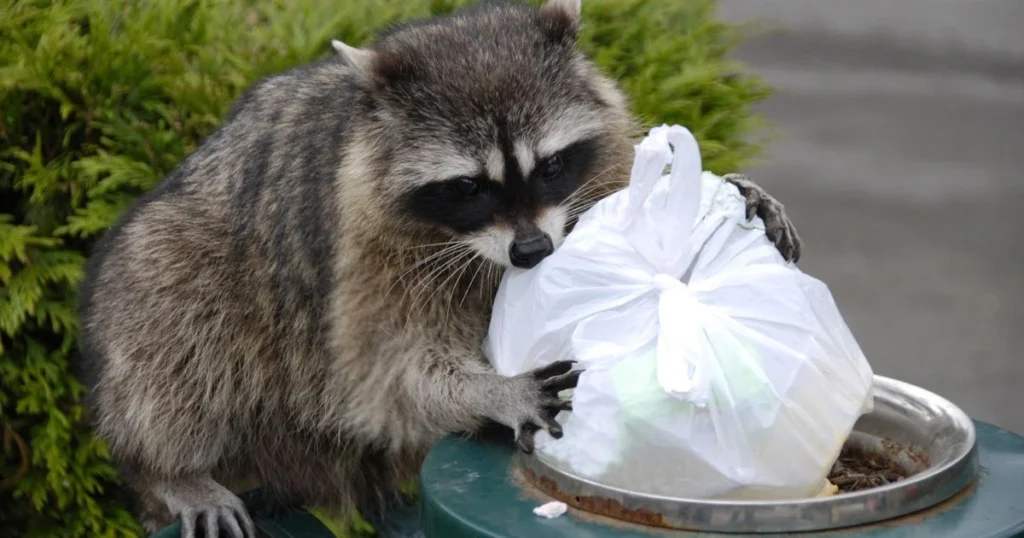
Raccoon feces can pose significant health risks due to the potential for disease transmission. It is crucial for individuals to understand the hazards associated with exposure and the importance of safe handling and cleaning practices.
Raccoon feces can carry several pathogens that are harmful to humans. One notable disease associated with raccoon droppings is raccoon roundworm (Baylisascaris procyonis). This parasite can cause severe neurological issues if ingested, especially in children. Symptoms might include fever, headaches, and vision problems.
In addition to roundworm, raccoon feces may harbor bacteria such as Salmonella and E. coli, leading to gastrointestinal illness. The organic matter in the feces can also attract other pests like flies, which can further spread disease.
It is essential to recognize that contact with feces, either through accidental ingestion or touching contaminated surfaces, presents considerable risk. Infections can result from casual exposure, highlighting the importance of avoiding direct contact with raccoon feces.
Safe cleaning practices are vital to minimize health risks when encountering raccoon feces. Protective gear, such as gloves and masks, should always be worn during cleanup to avoid direct contact. It is advisable to avoid shaking or stirring the droppings, as this may aerosolize harmful pathogens.
Cleaning should involve the use of a disinfectant solution. A mixture of bleach and water (1:10 ratio) effectively kills most pathogens in the feces. Allow the solution to sit for at least 10 minutes before wiping the area with paper towels. Dispose of the waste and use gloves properly.
Always wash hands thoroughly with soap and water after handling any materials contaminated with raccoon feces, even if gloves were used. Consulting a professional pest control service may be the safest option for areas with significant contamination.
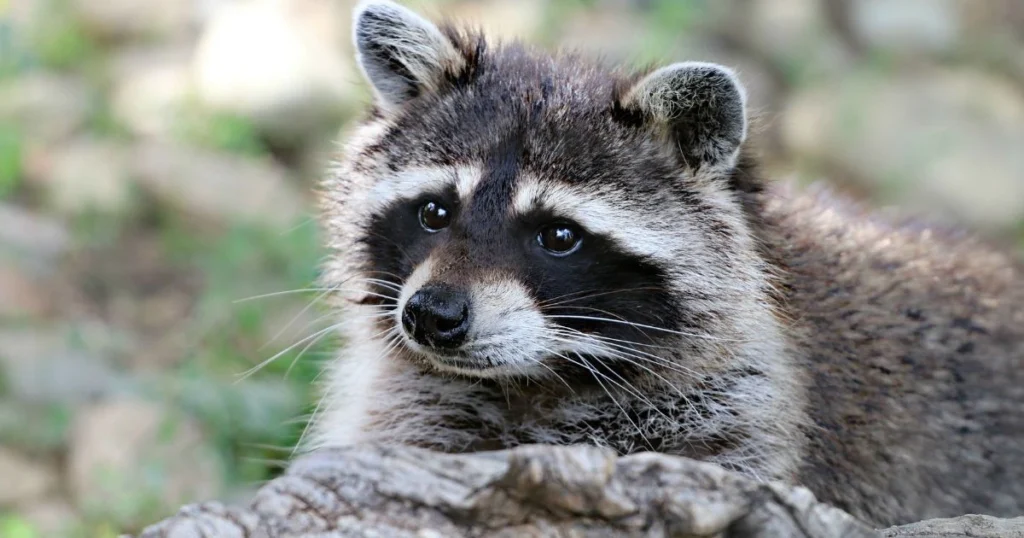
Parasitic infections in raccoons can lead to significant health issues. Understanding how to identify these infections is crucial for effective management and treatment.
Various worms and protozoa are common parasitic infections in raccoons. One notable example is the Raccoon Worm (Baylisascaris procyonis), which can cause serious neurological effects in animals and humans. Symptoms in raccoons may include lethargy, weight loss, and gastrointestinal disturbances.
Veterinarians often diagnose these infections through fecal examinations and blood tests. Infected raccoons may exhibit signs such as a rough coat or skin lesions. Timely diagnosis and treatment are vital to prevent the spread of parasites to other wildlife and even humans. Proper hygiene and monitoring of raccoon populations can help reduce the risks associated with these infections.
Raccoons are susceptible to several viral diseases impacting their health and ecosystems. Understanding these viruses helps manage raccoon populations and mitigate potential risks to humans and pets.
Raccoon Virus is a notable concern among viral infections affecting this species. This virus can cause serious health issues, including respiratory problems and neurological disorders.
Transmission often occurs through contact with infected raccoons or exposure to contaminated environments. Symptoms may include lethargy, lack of appetite, and unusual behavior.
Vaccination and control measures can help reduce the incidence of such diseases. Tracking and monitoring raccoon populations for signs of viral infections is essential for public health.
Viral diseases can also affect domestic animals; rabies is a significant concern. Vigilance in wildlife management is critical to prevent outbreaks affecting raccoon and human populations.
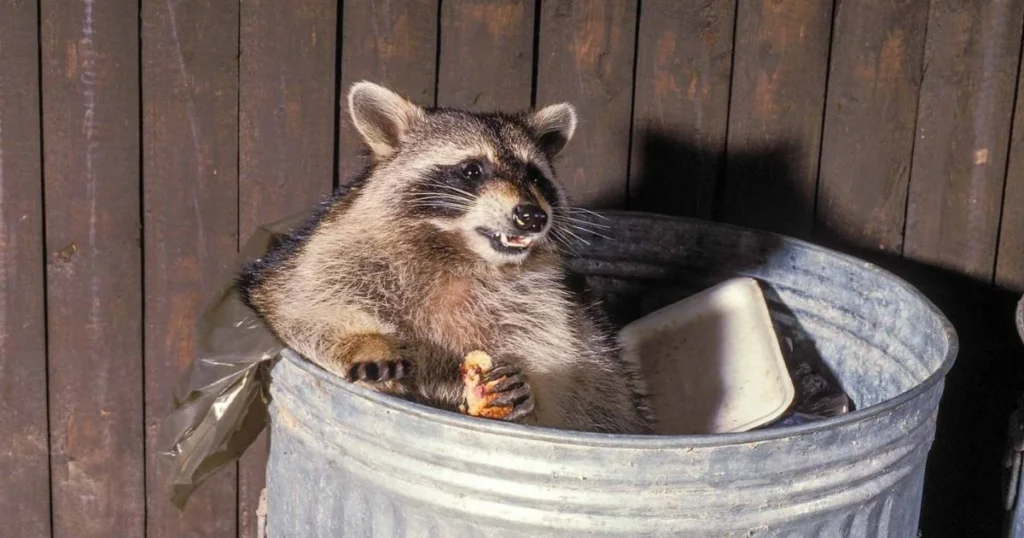
Proper health management for raccoons is crucial for preventing and addressing diseases. Individuals should be aware of the signs that indicate the need for veterinary consultation and understand the importance of vaccinations and safe practices.
Raccoons exhibit specific symptoms that signal the need for immediate veterinary attention. Signs to watch for include:
If a raccoon shows any combination of these symptoms, consulting a veterinarian is essential for diagnosis and treatment.
Vaccinations play a vital role in maintaining a raccoon's health. Key vaccinations include:
In addition to vaccinations, several precautions help minimize disease exposure. Regular check-ups ensure timely detection of health issues. Maintaining a clean living environment, free from potential hazards and parasites, also contributes to their well-being.
Ensuring that raccoons are kept away from strays and potentially infected animals can further reduce health risks. Regular health monitoring allows for prompt intervention if issues arise.
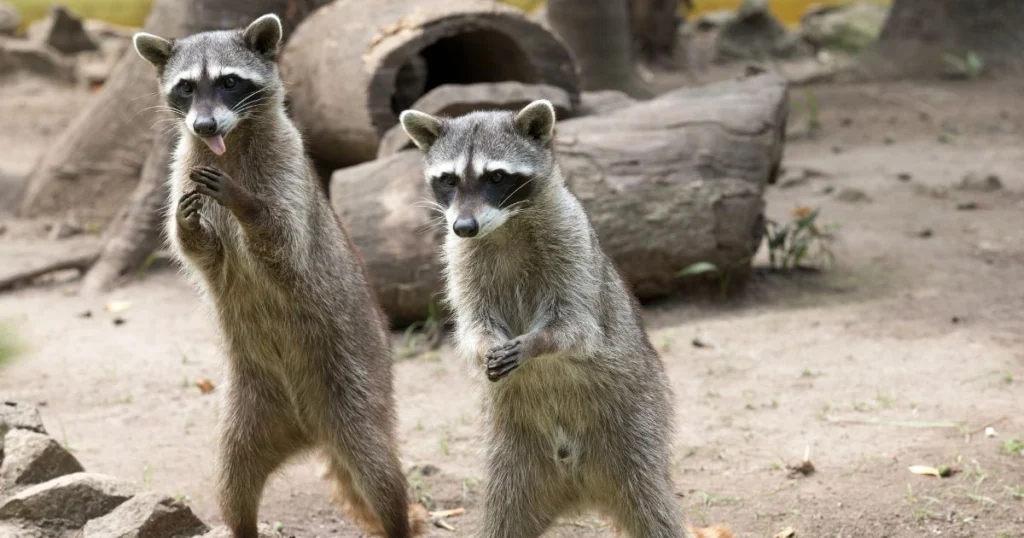
Balancing the needs of human populations and raccoons is essential for fostering a harmonious environment. Understanding habitat requirements for both can lead to effective coexistence strategies.
Human development often encroaches on raccoon habitats, leading to conflicts. To mitigate this, urban planners can establish green corridors that provide raccoons safe passage and access to food sources.
Implementing secured trash receptacles is vital to reduce food availability for raccoons in cities. Public education campaigns on appropriate waste management can further promote safer coexistence.
When raccoons have adequate natural habitats, they are less likely to invade human spaces. Communities can adopt landscaping practices prioritizing native plants enhancing local ecosystems while diminishing raccoon attraction.
If you have any raccoon-related issues on properties, it is advisable to seek professional assistance. Critter Stop has a fantastic reputation and online customer reviews because it provides high-quality work and great customer service. To solve wildlife or pest removal problems, call Critter Stop at (214) 234-2616 for a free inspection.
Raccoon diseases pose significant risks to both wildlife and humans. Understanding these diseases, their transmission, and prevention methods is crucial for safety and ecological health.
Raccoons can spread several diseases, including rabies, leptospirosis, and raccoon roundworm. These diseases can affect other wildlife species, domestic animals, and humans.
Diseases carried by raccoons can disrupt local ecosystems by affecting the health of various wildlife populations. Domestic pets can contract diseases like leptospirosis if they come into contact with infected raccoons or their waste.
Homeowners should be particularly concerned about rabies and raccoon roundworm. Both can pose serious health risks if transmission occurs.
Raccoon roundworm, or Baylisascaris procyonis, can cause severe neurological problems in humans. To prevent exposure, individuals should avoid contact with raccoon feces and ensure that children do not play in areas where raccoons are known to frequent.
While fatalities from raccoon bites are rare, they can occur, especially if rabies is transmitted. Symptoms of a severe reaction include intense pain, swelling, and fever in the bite area.
Raccoon sickness refers to various illnesses affecting raccoons, such as distemper or rabies. Symptoms can include lethargy, coughing, and abnormal behavior.
Human symptoms can vary and may include fever, fatigue, and digestive issues. In severe cases, neurological symptoms can occur due to larval migration.
Raccoon feces can contain parasites and pathogens, such as raccoon roundworm eggs. Handling it without proper precautions can lead to the transmission of these harmful organisms.
Yes, raccoon feces can transmit diseases like raccoon roundworm and leptospirosis. These pose significant health risks, particularly to children and pets.
Raccoon worm typically refers to the raccoon roundworm, which affects raccoons and can cause serious health issues in humans if transmitted. It thrives in raccoons' intestines and can shed eggs through their feces.
Raccoon viruses, such as rabies, spread through bites or scratches. Precautions include avoiding interactions with wild raccoons and vaccinating pets against rabies.
Raccoon poop may contain raccoon roundworm eggs, which are infectious. Proper sanitation, including cleaning and disinfecting areas where raccoons have defecated, can reduce health risks significantly.
Raccoon poop is not toxic in the traditional sense but can harbor pathogens. Wearing gloves, a mask, and disinfectants during cleanup are essential safety measures.
Communities can prevent the spread of raccoon diseases by managing garbage, eliminating food sources, and educating residents about the risks associated with raccoons. Regular monitoring and responding to raccoon sightings can also aid in disease control.
Visit our Critter Library and learn more about our furry friends